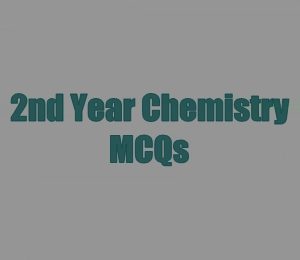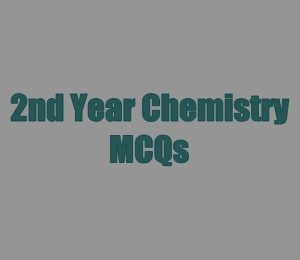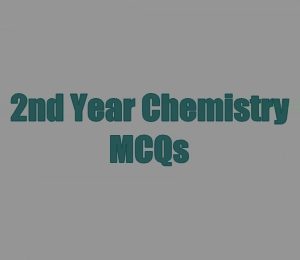Check the important 2nd Year Chemistry Chapter 16 MCQs Environmental Chemistry here. This chapter is about the study of different chemicals in the environment. There are different pollutants including CO, SO2, and oxides of Nitrogen that are polluting the environment. The polluted air that has chemical pollutants including CO, SO2, and Oxides of Nitrogen are very dangerous for the environment. There are causes of Water pollution. There are different ways to prepare purified water and treatment of industrial waste to clean the environment. Now let’s move toward the MCQs and start preparing for the entrance test. Solve the quiz given below and also check the answers.
2nd Year Chemistry Chapter 16 MCQs Environmental Chemistry
485



